
When insurance totals your car, even when you get compensated for the value of the car, you may still be owed more money.
What is Total Loss Insurance?
Essentially, total loss insurance kicks in after an accident in which your vehicle was “totaled”—that is, when the loss of value or the cost of repair for the vehicle are greater than the insurance value. This is also known as a “total loss.” After an accident, an insurance adjuster investigates the damage, determines if the vehicle is considered a total loss or not, and determines necessary reimbursement.
Your car may be declared a total loss of the damage to the vehicle outweighs the value of the car. In certain instances, the cost for repair may have to completely eclipse the car’s value to be considered a total loss. However, most insurance companies will declare a total loss of the cost of repair is determined to be between 70 and 75 percent of the car’s total value. This percentage is known as the total loss threshold, and varies from state to state.
The value of the car is determined by the insurance company, which generally cites the vehicle’s actual cash value prior to the accident, in addition to adding up the cost of the repairs. Different insurance companies have different methods of figuring out a car’s value.
Individual policies and insurance companies differ, but policyholders are generally offered the fair market value of their vehicle as it was on the day the accident took place. This “fair market value” is determined by consulting an authorized guide, such as the Kelley Blue Book, which is the standard reference for the auto industry used to determine the value of used vehicles. Factors that will affect your vehicle’s value include total mileage, mechanical condition, and year, make and model.
It’s a good idea for consumers to figure out an estimated actual cash value for their vehicle as well, just to make sure that the insurance company is offering you a deal in the right ballpark. Online tools, as well as local classified ads for similar cars, can help establish this base estimate.
They’re Offering Less Than it Will Cost to Replace my Vehicle. What Can I Do?
The unfortunate fact is that unless you have anticipated this situation beforehand, you will not get full replacement value for your vehicle. Even worse, if you are “upside down” – in other words, owe more on your vehicle than it can be sold for just before the accident, you will wind up having to continue making payments on it, even if insurance totals your car.

There is another option, albeit not an ideal one. If your car is still street legal and you are able to drive it after an accident, or it can be “patched together” after an insurer totals it (as is sometimes the case) – or you can live with cosmetic damage – you can “elect to retain salvage,” take a smaller payment from the insurance company, and pay for the repairs yourself.
What Can I Be Compensated For After My Car Is Totaled?
After your car has been totaled, you can file a total loss insurance claim, for which you can be compensated the total value of the car.
However, it’s not just the car itself that you can be compensated for. There are some key things to look out for to make sure that you are being properly compensated for everything you’re eligible for after insurance totals your car. Compensation you may be entitled to includes the value of the car, as well as things like sales tax and other fees.
Indeed, there are associated taxes and fees—sales tax, title transfer fees, tag transfer fees, and more—that companies may fail to compensate for after a total loss car accident.
In some cases, consumers claim that they are owed hundreds or even thousands of dollars in taxes and fees.
Does the State I Live in Matter?
Yes, it does. Different states have different requirements for a vehicle to be deemed a totaled loss. For example, in Kansas, the damage has to equal at least 75 percent of your car’s total value in order to be considered a total loss. In Indiana, that figure is 70 percent, and in Mississippi, the number is 80 percent. In Texas and Colorado, the total loss threshold is 100 percent. That means that 100 percent of the car’s value needs to be determined a total loss.
Nearly half the states have a Total Loss Formula that means the sum of the cost of the repair plus the salvage value of the car must be greater than the car’s actual cash value to be considered a total loss. When insurance totals your car in Alaska, Arizona, Delaware, Minnesota and Utah, just to name a few, a Total Loss Formula will determine the totality of a vehicle’s damages.
The difference is where you live can be illustrated. If you have a Ford Explorer valued at $15,000, a minimum of 70 percent in damage ($10,500) would qualify as a total loss in the state of Indiana. That same vehicle would need to incur $15,000 in damage to be considered a total loss in the state of Colorado.
The amount you receive for registration and titles fees will vary by state because the amount you paid in the first place will be different depending upon the state where you reside and registered the vehicle. Some states charge a flat rate for title and registration, but others charge an amount based on the vehicle’s weight, value, age or other criteria.
Have any Total Loss Insurance Lawsuits Been Filed?
Major insurance companies have been hit with class action litigation over failing to pay all associated compensation for a total loss car accident. Indeed, GEICO has been hit with class action lawsuits over breach of contract due to failure to pay sales tax and title transfer fees. In one such lawsuit in June 2018, a Florida federal judge ruled in favor of the plaintiff and against GEICO.
Other insurance companies may have similarly underpaid policyholders after a total loss car accident.
Can I File a Total Loss Insurance Lawsuit?
If insurance totals your car, but you were only compensated for the value of the car and not compensated for things like sales tax and other fees, and this occurred sometime in the last five years, you may qualify to join a total loss insurance class action lawsuit investigation.
You may qualify to join this investigation if both of the following apply:
- Your vehicle was totaled after a car or motorcycle accident
- Your insurance company paid for the total loss (not the other driver’s insurance company)
Filing a lawsuit can be a daunting prospect, especially after something as traumatic as a car accident can be, so Top Class Actions has laid the groundwork for you by connecting you with an experienced attorney. Consulting an attorney can help you determine if you have a claim, navigate the complexities of litigation, and maximize your potential compensation.
Join a Free Total Loss Car Accident Class Action Lawsuit Investigation
If you were insured under an auto insurance policy, experienced a total loss car accident, and were not reimbursed for sales tax and other fees by your insurance company in the last 5 years, you may qualify to join a total loss car accident class action lawsuit investigation.
ATTORNEY ADVERTISING
Top Class Actions is a Proud Member of the American Bar Association
LEGAL INFORMATION IS NOT LEGAL ADVICE
Top Class Actions Legal Statement
©2008 – 2026 Top Class Actions® LLC
Various Trademarks held by their respective owners
This website is not intended for viewing or usage by European Union citizens.



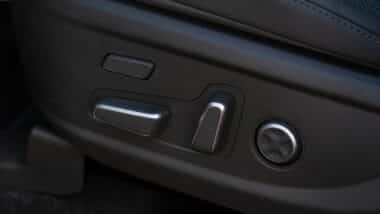
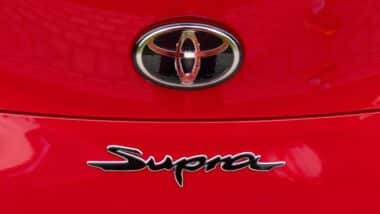

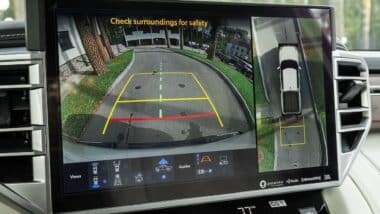
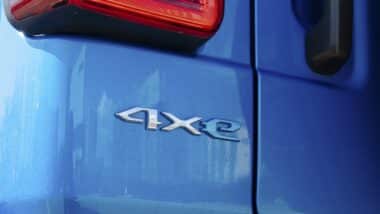


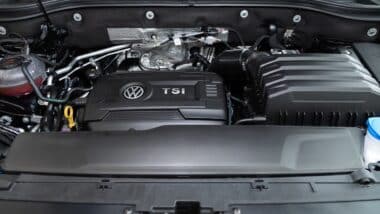


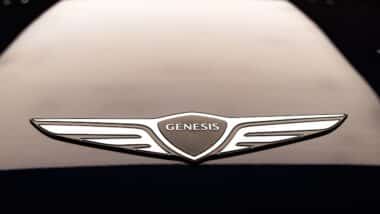

7 thoughts onWhat Happens if Insurance Totals Your Car?
Please add me
Add me to the class action because Geico have take three cars from
Add me too!
add me unsure if the amount included those fees had have AAA So Cal
Add me totaled in 2017 did not receive taxes or other fees
I had insurance to total the same vehicle twice but i refused becaused it was paid for but still had full coverage. I took to insurance repair shop and they repaired it with cost way lower than the actual the estimate in which they estimated. The high estimated repair was why they totaled the vehicle. I was able to drive off in my Jeep Liberty both times. This was 4-5years ago and my mileage as of now is like 211000 mile, I drove 50 miles to work round trip. So milage wasnt way high . I guess what im asking is why Liberty Mutual totaled my 2002 Jeep because repairs were suppose to be more than it’s worth. Then repaired extremly cheaper than the estimated total cost. Not 1 time but twice. Its still driving as good & looks as good as when purchased. Does this qualify. I have changed insurance about 2 yrs ago. Because premium went way up. Does this qualify?
I had three cars totaled. Add me!